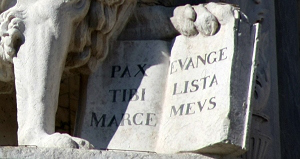The past is an experience, the present is an experiment, the future is expectations. Use your experience in your experiment to achieve your expectations! – Anonymous quote
A few weeks ago I read a HBR column titled “Why marketing needs to hire a corporate folklorist.” The key point of the article was that every market-centered company should hire a chief storyteller to manage the collective memory of its brand.
More often than occasionally, the future of an organization is anchored in its past. Some big companies even actively treasure, celebrate, and monetize their historic brand icons:
- At the 2015 CES show in Las Vegas, Kodak introduced a photography-focused smartphone dubbed the “Instamatic 5.” A clear hint to the company’s family of success products in the 1960s.
- IBM’s futuristic Artificial Intelligence system, “Watson,” has been named after Big Blue’s first CEO Thomas J. Watson, who lead the company during the first half of the previous century.
- The current Volkswagen Beetle’s exterior design is heavily inspired by the original 1938 model. The People’s Vehicle that dethroned the Ford T in 1972 as the world’s bestselling car ever.
- The Coca Cola bottle, one of the most recognized icons in the world, still inherits the contour design of 1915, “which a person could recognize even if they felt it in the dark, and so shaped that, even if broken, a person could tell at a glance what it was.”
Does this mean that all your brand marketing stories have to be echoes of the past? Certainly not. But there’s also nothing wrong with cherishing our collective memory ― while living (and doing business) in the present and preparing for the future.
Here are a few good reasons for doing so:
- Trust: although past performance has never been (and will never be) a guarantee of future results, a company with a long-standing history of success may be conveying a more trustful image than a little known newcomer.
- Identity: you cannot wipe out a company’s past. Whether positive or negative, it reflects on its current image, identity, and reputation.
- Story: citing the HBR article, every touch point in the marketing mix – including advertising, executive communication, demand generation, sales enablement, and customer support – benefits from an injection of folklore because stories are a potent vehicle for persuasion.
When I worked as a freelancer for Apple Computer in the late eighties, that company already recognized the role of “evangelists”. Guy Kawasaki, about whom I wrote in my “Four storytellers about storytelling” post was one of them. Kawasaki’s describes evangelistic marketing as “when you convince people to believe in your dream as much as you do.”
About a decade later, I also had a “Marc the Evangelist” photo with a Venetian lion sticking on the door of my office in Alcatel.

The function of evangelist still exists today. Although it may pop up under different names such as “advocate”, “rainmaker”, “corporate storyteller” or even, ugh, “solution consultant”. In a November 2013 blog post, I talked about a study by the French ManpowerGroup that identified the Storyteller as one of three emerging job profile for the future.
Here’s why you should appoint or hire one or more company evangelist(s):
- Brand marketing: to get your customers emotionally engaged with your company and/or your brand. To communicate with them about your core values and differentiators, and position your offer beyond functionality and price.
- Thought leadership: to listen to your customers, change the conversation, and establish a new dialog with them. Evangelists may also help you to identify opportunities and open up doors for new business.
- Portfolio clarification: to let your audience better understand your products, services, and solutions. A well told story will simplify information, make your message more memorable, and (maybe) persuade people when facts can’t.
Things are changing fast in this world, and companies need to watch ahead to learn about what’s coming. This is why also futurists appear (an internal or external resources) in marketing organizations:
- Identify long term business opportunities: keeping up with market and technology trends is crucial for the continuity of any business. One of the key tasks of a corporate futurist is to research new trends, offer insights and suggest new business opportunities.
- Inspire company strategy and drive product roadmap: insight in what’s coming may give a competitive edge to a company, allowing to target future markets, with better product functionality and timely roadmaps.
- Trend watching and trend setting: a good marketer (and even a sales person) should talk about the future and give customers a perspective of the “things to come.” Personally, I believe that providing a 2-5 year vision statement is one of the best methods for selling the products and services that you have available today.
For illustration, here‘s the link to a futurist type presentation I delivered earlier this week at a Fiber to the Home conference.
As a conclusion and a call to action: in many companies there’s a role to play for folklorists, evangelists, and futurists, or – why not – for this one rare bird that can connect the past, the present, and the future and deliver the best of all times as a single story.
This article was syndicated from Business 2 Community: About Folklorists, Evangelists, And Futurists
More Sales & Marketing articles from Business 2 Community:




